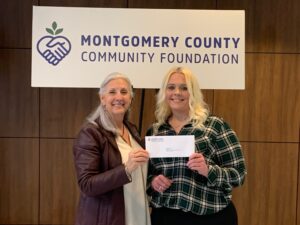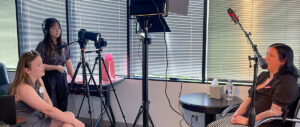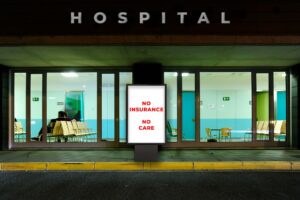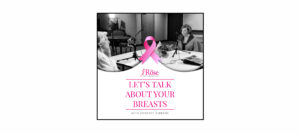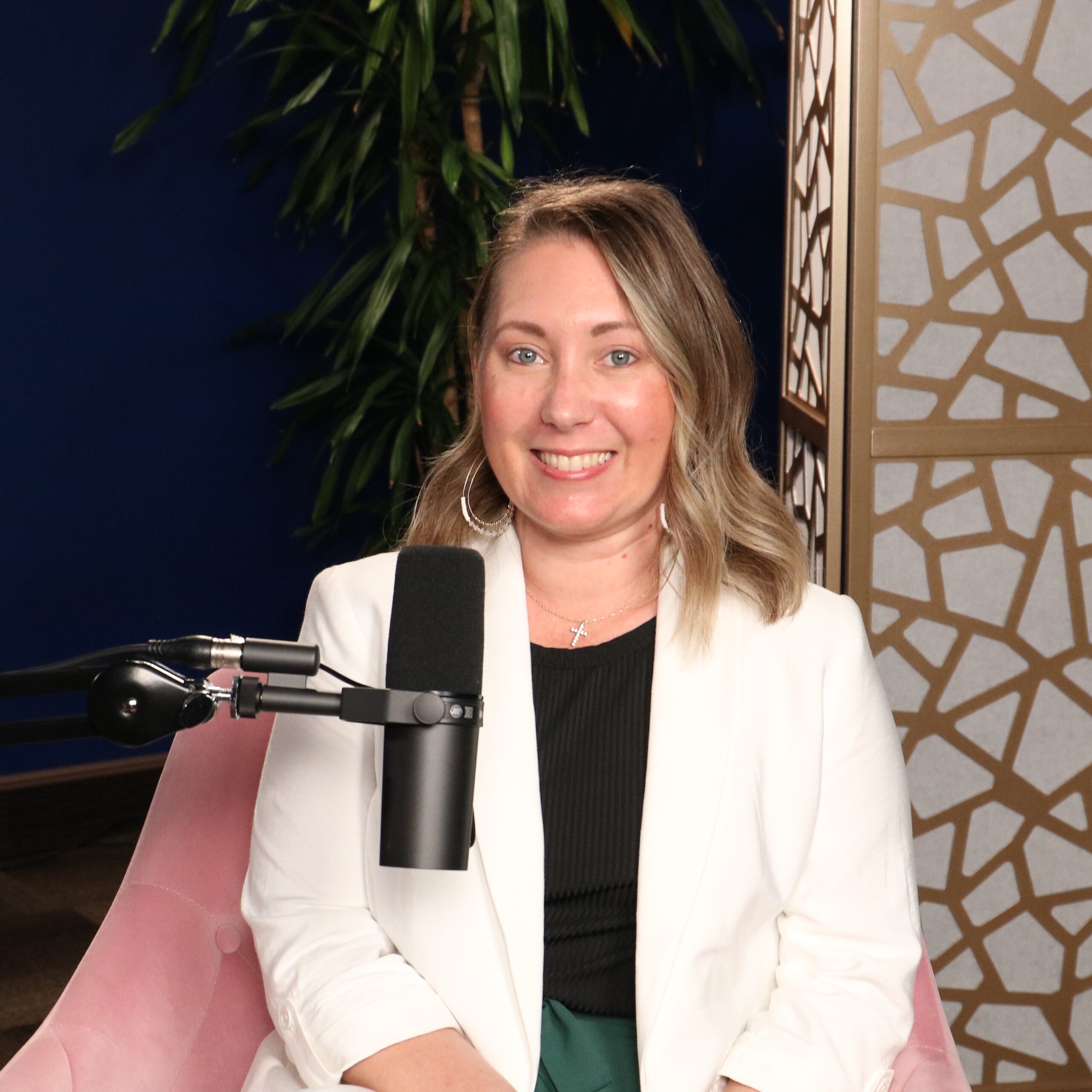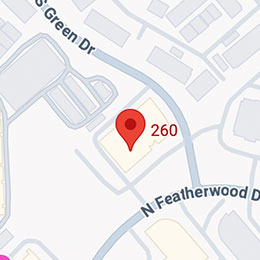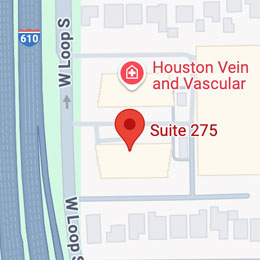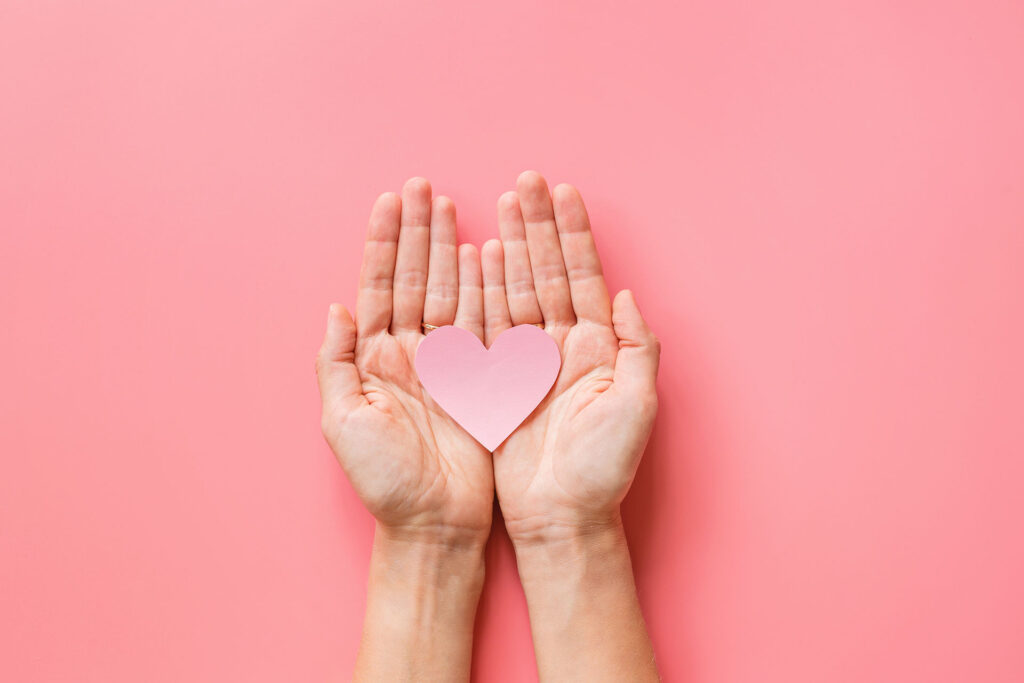Dorothy: [00:00:00] Morgan Muraca never expected to be diagnosed with breast cancer. Her whole goal was to get her employees to participate in a mobile mammography day. And while she is out encouraging her employees to sign up for that day, she thought, well, if I do it myself, then maybe that’ll set the example they need.
Morgan is now an incredible advocate for breast cancer screening. She is one who is here to tell us why it’s so important. to employers to help their employees have a better life. And she’s also showing us how you set the example in one of the most difficult ways and times in a person’s life.
When you subscribe to our show, you help us grow. Someone you know may need to hear this story. So please, share with your family and friends. And consider supporting our mission. Your donation can help save the life of an uninsured woman.[00:01:00]
Let’s Talk About Your Breast. A different kind of podcast presented to you by The Rose, the Breast Center of Excellence and a Texas treasure. You’re going to hear frank discussions about tough topics and you’re going to learn why knowing about your breast could save your life.
Morgan, thank you so much for being with us today. It’s such a delight to have you here.
Morgan: Thank you for having me.
Dorothy: So I want to go back to how this all got started, how you even found out about The Rose and, and what was that, uh, relationship, right. Now, you are the HR manager.
Morgan: I’m the HR manager for my employer and part of my job is to kind of coordinate wellness initiatives and events for our employees and so, um, I had planned out a couple of things throughout the year and wanted to have y’all out at our locations [00:02:00] to give our employees mammograms.
Dorothy: Now, tell me your employer again.
Morgan: Amoco Federal Credit Union. So, we had scheduled for y’all to come out, it was two or three different dates, um, in September, uh, because we couldn’t get it in October.
But, um, in September, and we didn’t have a whole lot of participation. Um, it was a new thing that we had done. I don’t think that we had had The Rose out for several years. I think they did it way before I worked there. So it had been a while and we promoted it and promoted it. Didn’t have a whole lot of participation.
Um, and so I signed up just like trying to get other employees to sign up. I was only 38 at the time. And so my mammogram was on September 1st and I went. It was a great experience. I was really impressed with the whole, um, mobile aspect of it. It was really easy, just smooth process and, and very private too.
Uh, so that was really nice. They only allowed like one person on the bus at a time. And so I had my [00:03:00] mammogram, didn’t think anything of it. Uh, I received a letter from y’all, um, about a week or so later, uh, that stated there was two spots that they wanted to ultrasound, um, one in each breast. And I have like super dense breasts anyways. And so I didn’t think anything of it. I’m like, Oh, I, yeah, I’ve had lumps all my life and, um, but, uh, they hadn’t gotten any bigger. They didn’t really hurt. Like I didn’t have really hardly any symptoms. And so I came for my ultrasound and the two spots that they found on the mammogram were not the cancer ones.
But while they were doing the ultrasound is when they found the third spot and that was cancer. And so had I not signed up and gotten the mammogram, I’m one that kind of procrastinates on my appointments anyways. And so I would not have gotten a mammogram probably for a few more years. Um, because I was 38, so.
Dorothy: Right, so that, was [00:04:00] that your first one?
Morgan: Mm hmm.
Dorothy: Ah.
Morgan: Yeah. Yeah. And so, I am very thankful for The Rose because, um, I wouldn’t have known, because like I said, I didn’t, I didn’t have any symptoms that I, that I could attribute to cancer.
Dorothy: Right.
Morgan: You know?
Dorothy: And was there any, uh, breast cancer in your family?
Morgan: My grandmother, um, on my mom’s side had breast cancer when I was little. Um, she was 50, and I don’t really know the whole, all the details of her cancer. I do remember vaguely that she had surgery. She had a, a single mastectomy because she had reconstruction and she used to tease me. I guess they took like, tissue from her stomach. And so she used to tell me if her stomach itched, she had to scratch her boob or something like that. She used to tease me, and I believed it, too. Um, but, yeah, she was the only one that had breast cancer in my family. And back then, they didn’t really talk about things. So—
Dorothy: You’re covering so many different areas, Morgan. The first one is, in our mobile unit, we [00:05:00] believe that women can start at 35. I mean, we believe it’s very important, yes. And because mobile is just screening, I mean, we’re not, we’re just doing a routine screening mammogram. And I can’t tell you how many patients we have found: first mammogram, and then they were diagnosed. If ever you want to find cancer, it is in that time period. Because it will be so much earlier than if you have already felt it. The other thing you said was, I had two other areas. I had them a while and nothing had ever changed about them. You weren’t particularly concerned with those two areas.
Morgan: I wasn’t. Um, just because, you know, I’d had, I, again, I have very dense breasts. I have a lot of fibroadenomas. I don’t know if I’m saying that correctly. A lot, and I’ve had them for years. And I’m of course was self diagnosing at that point, um, but they were confirmed when I had my ultrasound and then my biopsies, but you know, I [00:06:00] had asked my OB GYN doctor whenever I would go for my well-women’s Just to check me out, you know, every other time, you know, just to make sure no one ever seemed concerned and, um, so yeah, I didn’t, wasn’t really concerned at all.
Dorothy: So that was another real important lesson. We could have these areas and fibroadenomas are primarily benign. They’re not anything that could be annoying, but, you know, they’re, they’re not anything. But that can mask when something does come up because we often say, well, that’s just my, you know, fibrous breasts. That’s just, you know, I’m lumpy bumpy. It doesn’t matter.
Morgan: They’re self diagnosing, you know, which is exactly what I did. And so I do feel that a younger mammogram age is important because, you know, I asked my surgeon. How long did she think this had been in my body? Um, and she said about a year or so. So if you think about it, then I was maybe [00:07:00] 37 ish when this even developed in my body and didn’t know.
Dorothy: Now what, what stage, what, what was your final diagnosis?
Morgan: So I was a stage one and then a letter. It was either an A or a C, I can’t remember. And I had a lumpectomy. And they, and it was IDC, so they went in and they removed that. Um, but when they went in, they also found another area of DCIS and they removed that as well.
Dorothy: So, wow, you go from trying to be the example, you know, here I’m going to sign up so the others will. And did they follow your example?
Morgan: I feel like they did. You know, I had several employees that signed up after that when I kept encouraging it. Um, but then after I got diagnosed and people would find out what happened and how young I was, um, I had a lot of employees and friends and family that went and scheduled their mammogram. Um, just because they couldn’t believe that I had cancer. Because I was generally healthy before then. Really never had anything [00:08:00] wrong.
Dorothy: And that, that’s the thing. That’s the irony of breast cancer. People healthy can happen to, Marathon runners can happen to, you know, anyone. It’s, uh, it’s not something that you can predict or, you know.
Morgan: No, it’s random. You know, I did the genetics testing. I did all the things to try to figure out how this, um, happened to my body. And, uh, It’s just kind of random. You know, it wasn’t genetic with me.
Dorothy: It wasn’t. So the other part of this, I want, I want you to, if you don’t mind, go back to your, this is your first mammogram. You know, and one of the, the, uh, barriers, one of the biggest things that we have to overcome and trying to get women to have a mammogram is all the stories they’ve heard. Oh my gosh, it is gonna hurt. Oh my gosh, it is horrible. It doesn’t sound like you found that to be the experience on your first mammogram.
Morgan: No, um, it was not painful. Um, [00:09:00] it was very easy. Um, the technician explained everything, um, as she was doing it. And, uh, to be honest, you know, once you, once you get breast cancer, and you have to have ultrasounds and biopsies and MRIs and tests. You have a mammogram after every single one of those things. And so I’ve had plenty of mammograms now. Um, and, uh, I would say that the mammogram is probably the least uncomfortable thing that I’ve had to do.
Dorothy: Good. That’s an important message for women to hear. And I, I think the other part was that they were going through each step with you.
Morgan: Mm hmm.
Dorothy: Saying, this is what we’re going to do, and that compression can be awkward, can be uncomfortable.
Morgan: It’s awkward. It is awkward, but it’s, it’s not painful at all.
Dorothy: Especially with dense breasts, it can sometimes be, but for you. It was, it was not that way. And you talked about the coach and its privacy, and I think that is a, an important thing for us to stress, just because [00:10:00] it is so private. You’re going into an exam room.
Morgan: Well, and it, it was a lot nicer than I expected, too. It’s, it’s almost like you’re walking into a high end facility. Like, that’s what it felt like. It did not feel like you were on a, a bus, you know. Um, and, uh, so it was a really nice experience.
Dorothy: So, now. I want to talk about your, your diagnosis and your treatment, but I also want to talk about that after effect where you said your friends and employees then said, Oh, maybe it is time for me to do that. How, keep your HR hat on for just a minute, you know, how important would this be to an employer having the mobile come out for their females?
Morgan: I think it’s really important, um, just to have those opportunities for employees to, um, do some of that, those preventative health measures. Um, just because, you know, when you find things early on, this is, this is how I feel about it. Um, [00:11:00] you still have to go through the treatment. Like, there’s still phases in treatment, but it’s nowhere near as, what’s the word? Intense, um, as it could be if you found it later, you know, so if you do those preventative measures, if you provide those opportunities for employees, it’s gonna in, in turn create healthier employees, um, and it’s gonna protect them. And so I do feel it’s very important to offer those.
Dorothy: Besides that mindset of you’re important to us. Yeah.
Morgan: Right.
Dorothy: Yeah.
Morgan: Well, it’s supporting them, you know, it’s supporting them, um, because, uh, Nowadays in the employment climate, um, it’s really important for employees to know that their employers actually do care about them. And it’s not just about the bottom line. It’s not just about the job that they’re doing, but they genuinely care about their wellbeing. Um, and so I think that’s just a really simple way to show that you do care is to provide these opportunities to [00:12:00] employees throughout the year where they can, it’s convenient. You know, to get those, those mammograms.
Dorothy: You may not know this Morgan, but when we do our surveys, it’s something like 75 percent of all the women on the mobile say, well, I probably would have skipped it this year. I probably wouldn’t have gone. It’s a half a day, no matter what, you know, you’re going to be out of work. You’re going to have to make arrangements.
Morgan: And with The Rose coming out, I didn’t have to take any PTO. Um, it took about 15, 20 minutes tops. Um, and that’s just because I had them park way far back in the parking lot. And I had the walk was part of that 15, 20 minutes, but it was a beautiful day that day. So that was fine. Um, but, uh, yeah, it’s just, it’s convenient and it’s, it’s there.
Um, you, you, there was no upfront cost because everything went through our insurance and that y’all made that process very simple. Um, and so really it, it wasn’t hard to coordinate that and to offer it to our employees.
Dorothy: And now in your [00:13:00] business, what is the ratio? We have more men than women, more women than men?
Morgan: We have way more women than men, um, with, uh, you know, at the credit union. Um, I don’t know what the ratio is, but we do have more females.
Dorothy: Yeah. So many medium sized businesses, small business, don’t think that, you know, they can really have this come out. But it’s always amazing to me how, one thing you touched upon is, uh, getting their mammograms, you know, after COVID, a lot of women just didn’t do it. And so trying to get that habit going again, trying to, I don’t know, what’s the word, prioritize?
Morgan: Yes.
Dorothy: You know, getting, uh, any woman to prioritize that after years of saying, oh, well, I really don’t need to or can’t get there.
Morgan: It’s different now because, um, you know, COVID, even though it was in 2020, right, I was diagnosed in 2023. I just started going back to my regular appointments and this and [00:14:00] that, you know, a couple of years later. Yeah. Because you get in this, gotten this mindset of like, just not doing anything, not leaving our house or not, you know, doing any of the extra things that take time. So to kind of get back in that groove of making your regular appointments, um, it did kind of take everyone a while.
Dorothy: Yeah. Go to your, to your treatment. Well, let’s go back to your diagnosis. What? What did you first think when you were told?
Morgan: So, I have two teenage girls. Um, so, I don’t want to get emotional right now.
Dorothy: That’s okay. We don’t care if you get emotional. That’s what these Kleenex are for.
Morgan: Um, so my first thought was, you know, I don’t want, they’re both in high school. I did not want them to look back on their high school years and just think of their mom going through cancer treatment. So, my husband and I kind of had a really frank conversation when I first got diagnosed after the initial shock, um, about how it was really important to me to maintain normalcy throughout this whole thing.
[00:15:00] Um, you know, we, a lot of my appointments, a lot of my biopsies, um, you know, cause I have five biopsies. So there’s, it was kind of a lot. Um, a lot of that stuff was scheduled while they were at school. Um, so they didn’t see a lot of that. And so that was kind of the most important thing to me at that time.
You know, years ago, someone told me. that women’s brains are kind of like a spaghetti bowl, um, where, you know, we can have 20 million thoughts at one time and, and keep up with everything. Um, but men, their brains are like a waffle. They’re able to compartmentalize everything. And I don’t know if there’s any truth to that or not.
Um, I will say that’s very true for my husband and I. Um, but when I found out that I had cancer, it was something just switched in my brain and I was able to kind of compartmentalize everything. Um, And that really helped me through the process. And what I mean by that is, um, [00:16:00] I focused on, okay, what is my treatment right now? What do I have to do right now? What are the activities I have this week? What’s going on in my family? Not what. Oh my gosh, I’m going to have to do chemo or I’m going to have to do radiation or I may lose my hair. Like I tried not to think about any of that. Um, I just tried to be in the here and now and that really, really helped me. Um, it helped me not kind of get into that depression that was really easy to get into. Once you find out you have cancer. Um, and so that was kind of everything that was going through my mind.
Dorothy: So you, you put it in a different box.
Morgan: I did. I did very much so. Um, in fact, we had, uh, my, unfortunately, um, in the same week that I found out that I had cancer, my husband’s grandmother passed away. And so we had to focus on the family and the funeral and all of that that week. And so I feel like it kind of helped me put everything on the back burner and let me slowly process what I had just been told. [00:17:00] Um, and that helped. So —
Dorothy: How did you tell your daughters?
Morgan: Um, so When I had the ultrasound, um, it was Dr. Raz. Um, he’s amazing. Uh, but he, he was very honest with me and said, Hey, look, like, We need to do biopsies, but this does look like cancer. He reassured me. He’s like, it looks like it’s very early. You’re going to be fine. You know, all of that. And so that was on, I think a Monday or a Tuesday. We didn’t tell my girls then.
We didn’t want to tell them anything until we knew for sure. I had my biopsies, three of them, a week later. And then I, um, got the results of that, um, on that Friday of that week. So when my girls got home from school that day is when we decided to tell them. Because we had really had like two weeks to kind of prepare, like, this may be a possibility.
Um, so. And how are we going to tell them? And so when they got home from school that [00:18:00] day, we went ahead and told them, um, and we were just really positive about it. Like it’s, it’s this early. Um, I’m going to be okay. We don’t know what treatment looks like right now, but these are the possibilities. And they handled it pretty well.
Um, I would say that they took some time, you know, to process it. My older one, she’s a little bit more like me, and so she got kind of emotional. But she’s also wanting to be a nurse, so she had a lot of medical questions. Um, and then my youngest one, she’s more quiet and kind of reserved. But when she teared up, that was really hard because she’s not really a crier.
But a few hours later, they were like, okay, mom, what’s for dinner? So, I mean, they, they kind of processed it in their own way. And, um, we had to have a couple of those conversations because, you know, there was the initial diagnosis. And then once we decided I was having surgery, we talked to them then. And then once I found out I had to have, Chemo, that was kind of a harder conversation than [00:19:00] the initial diagnosis because, uh, both of them, I think, knew like once I started chemo, that’s when I really would be able to tell that I was kind of sick and they were scared of that. So during chemo, I just pushed, pushed, pushed and tried to be as normal as possible. Not that you should not process everything or not feel all your feelings, but it was just really important to me that my girls, like, be okay.
Dorothy: Right. And you made that decision to have the cold cap.
Morgan: Mm hmm.
Dorothy: During that time. So, share with our listeners what that even means.
Morgan: Absolutely. So, one of the things with chemo, and especially, um, it depends on the chemo drugs that you’re on, but there are some that, like you immediately lose your hair. Um, there’s no like retaining it. Um, but the cold cap kind of gives you an option to retain, uh, most of your hair. So, [00:20:00] I mean, you can see my hair now. I’m eight weeks out of chemo.
Dorothy: Wow.
Morgan: And I do have some balding, but it’s grown back already a little bit. And so you can’t really tell. But the cold cap, I have a friend of mine, uh, Rachel McMurray. She had breast cancer a few years ago and she did the cold cap. And she actually is really good friends with the representative for paxman, which was the company that I used for the cold cap, but essentially, um, it is it looks like a 1950s football helmet Um, but it’s a cap that you put on your head um, you have to wet your hair first and then you put some conditioner on it and you put it on your head while you’re doing chemo. And it hooks up to this big machine, and you’re icing your head, basically.
Um, it’s really cold, but it’s not unbearable. It really isn’t. It’s, I think I psyched myself up a little bit more, [00:21:00] um, in the beginning, because I didn’t know what to expect. But once I did it, I was like, oh, this is not bad. Like, I can do this. And, um, I retained about 50 percent of my hair. Um, I had very, very thick, long hair, um, prior to this. And I was able to retain probably about 50%, but it’s the cold cap, really what it does is it protects your hair follicles. So even when you do lose hair, your hair follicles are protected and so your hair goes back. Supposedly it’s supposed to grow back quicker. Um, but it was very helpful. You do have to pay out of pocket.
But the company is really nice and they work with you. I made multiple payments. Um, and they’ll give you a letter that you can even file with your insurance afterwards to see if your insurance will reimburse you.
Dorothy: Any of it, right. And is it on the entire time that you’re having your chemo?
Morgan: It is on the entire time that I’m doing chemo and, uh, so I wore it about, you know, six, seven hours each [00:22:00] time that I did chemo and, uh, yeah.
Dorothy: I think one of, uh, our patients talked about she had worn her, uh, contacts that day and it was just so cold that her eyes were, you know, burning. And I thought, well, that’s a good thing for people to know. You don’t want to wear your contacts on the day that you’re having that done.
Morgan: Well, and you, I. It’s different for everyone, um, and I think like, you just have to, you have, you really start to understand your body throughout this experience because you, you have to pay attention to your body and the different, um, you know, symptoms or reactions that you might have to things.
But I reacted really well to the cold cap. Um, you have to wear it. I think it was 30 minutes prior to your chemo starting. So I would get there at like nine o’clock in the morning, but I wouldn’t actually start my chemo until about nine 30, nine 45. Um, but the whole time. from 45, um, have the cold cap on.
So you have to wear it a little bit beforehand, and then you have to wear it 90 minutes after your [00:23:00] chemo is finished, because your hair, it has to thaw, because if you take the cap off immediately, you’re going to rip your hair out. Um, now you do, uh, they do recommend that you don’t, uh, you, I say you’re going to rip your hair out because it’s all ice.
So you have to wait for yourself to thaw out. Um, but, uh, and it’s, it’s wise to have somebody there to help you. Um, so like my husband was there every session and he really was helping me do my cold cap. Um, but, um, they do recommend you don’t wash your hair, um, every day. Uh, that really you only wash it maybe once a week, um, or even longer.
Dorothy: Which is different. For most people.
Morgan: Personally, myself, I could only go about 4 or 5 days and then I’m like, okay, I’m washing my hair. Um, but not to blow dry it, don’t curl it, don’t straighten it. Um, and so I didn’t, um, the whole time that I did chemo, I did not. I do follow some other people on, um, Instagram and, and Facebook and such [00:24:00] and they do a different type of cold cap where they’re having to change out ice packs. Every so often, um, but I didn’t have to do that. The Paxman cooling cap was really simple.
Dorothy: Yeah, it is, it is different. And now, touch point, you did touch upon this learning your body, learning to know what your body can respond to, how it’s going. Give us another example of that.
Morgan: So, prior to cancer, I was very much your type of person that liked supplements and herbal teas and, um, if I had a headache, I would try to drink a bottle of water before I took ibuprofen.
Um, just, I wasn’t a real big, like, medicine type person. And so my medical oncologist and I would kind of disagree on some things, but she’s super sweet and understands, um, that I am just how I am. But, so, um, during cancer, it was really important to me, like, I wanted to understand my body. I wanted to understand um, [00:25:00] really like why I developed this, um, if I could find that out and I did all of the testing, you know, the genetics testing, um, that my doctor ordered and, um, but I also did functional medicine. I don’t know if you’re familiar with any of that, but I did some functional medicine testing—
Dorothy: Now, explain it for our listeners.
Morgan: So I did a couple of different tests through this wellness company, which was like a food sensitivity test. A micronutrient assay, I can’t remember the name of it, but it was like a gene mutation type test. Um, really to kind of see if I could learn anything else about my body. And so I did learn, you know, that I do have some food sensitivities.
And I also learned that I do have a gene mutation in, in one of my genes that prevents my body from really absorbing like B vitamins, um, which are actually really important for your liver and detoxification of your body. And since my cancer was [00:26:00] hormone fed, you know, with estrogen, it made sense to me because my body wasn’t really like detoxing the extra estrogen that it was supposed to.
So all of that really made sense to me whether it’s right or wrong, I know there’s differing opinions in the medical community, but it made, it just made me feel better. And it made me feel like I had a little bit of control, um, in this situation. Um, and if that meant that I just took a little B vitamin every day, um, that made me feel like I had some control, then that’s, that’s what I did.
Dorothy: And that’s so important. It seems like everything’s out of control, but.
Morgan: You do really kind of learn a lot, um, because, when you go through chemo, um, it’s different for everyone and there are so many different symptoms, um, that you, you don’t really relate to chemo, but then when you’re done with it, you realize, oh, that was the chemo. So, yeah.
Dorothy: And it’s not another cancer.
Morgan: Yes, not another cancer.
Dorothy: Which often jumps in your head, yes.
Morgan: Yes. You know, at one point, uh, brain fog was such a big symptom [00:27:00] for me during chemo, which I hated. That was probably my, my one that I hated the most because, you know, I continued to work during the whole time. And um—
Dorothy: Talk a little bit about how your employer supported you during that time.
Morgan: Oh, they were amazing. Um, because, Usually my employer likes to go above and beyond for everything. Um, we had an employee who had breast cancer a few years ago and they did like t shirts for everyone and this big campaign and everything in support.
But they know with me, I’m more reserved, I’m more private. Um, And so they, they asked me, um, before if they did anything, they were like, are you okay with this? And I didn’t, I didn’t want a whole big to do. Again, my, my thing that was really important to me was maintaining normalcy.
Dorothy: And this is—
Morgan: Yes.
Dorothy: In HR you’re a little more.
Morgan: Yes, I don’t, you know, it’s not, you know, part of my job is I manage all the FMLA cases. And so I talk to employees all the time [00:28:00] about different things that they’re going through. And I, I just didn’t want my story to kind of overshadow or, or, um, just be the topic of conversation all the time, you know, I didn’t want to bring people down. And um so my employer knowing that about me the week before I went out for surgery my department still you know took me to lunch and they made this let me get checked up about this too, um, because it was really unexpected but um, they had made this huge care package for me and I mean it was like tons of gift cards and pajamas and just spa stuff and just random things, um, in this care package that they all did and, um, presented to me.
And it just meant a lot because it was, they supported me in the way that I needed to be supported. Um, you know, and I think that’s, what’s so great about them. So I’m still there. Um, but yeah, even during my treatment, um, I worked [00:29:00] the whole time. You know, I was off a couple of weeks for surgery. Um, for chemo, I was on a three week rotation. And so the week that I had chemo, I, I learned the hard way that, that I am not productive. I do not need to try to work. Um, so I would take those weeks off. But then those, other two weeks in between, you know, my recovery and then the next session of chemo, I still wasn’t a hundred percent. Um, so my leadership like constantly checked on me, you know, they wanted to help with things.
They kept reminding me, I’m a little bit of a workaholic, so they kept reminding me, like, you don’t have to do this, like, let me help you. Um, they were just really supportive in that way. Um, you know, with cancer, you have so many appointments.
Dorothy: Right.
Morgan: Um. And that is really hard to juggle, you know, with work and family and all that, but, um, they were really flexible with that as well.
Dorothy: So besides your care package, well, give us another example of some way a friend, a co worker stepped up and really helped you get through this [00:30:00] time.
Morgan: We actually had a lot of support throughout this. Um, we had friends that I hadn’t talked to in a long time that found out and reached out to me. Would send cards or, you know, we had family, even co workers and friends, um, that would offer to come pick up our girls and, like, take them to the mall or take them to go do something just to kind of help. Everybody really offered to help and that was nice because I didn’t expect, like, the level of support that we got. I mean, we have a lot of great people in our life. But there were some people that just literally dropped everything to help us.
Dorothy: And that’s what we often hear is just those that show up and are ready to do whatever, but you don’t have to ask them. They’re just, they’re just showing up.
Morgan: Even my parents, you know, my, my family lives in Florida and, um, My parents, they, they respected it in the beginning. I was like, you do not need to come and live with me, mother. Um, and my husband was like, she is not coming to live. No, I’m just kidding. [00:31:00] But no, my parents, they came for my surgery and helped out a little bit after that. And then they came not for my first treatment of chemo. Um, but they came for the second, third and fourth one, they would come and stay with us for the week and they helped so much.
And, you know, I’ve lived in Texas for almost 20 years and so I have not, I continue to try to look at the positive throughout this. I have not had that time to spend with my parents in this whole 20 years like I did when I was doing treatment because they came and they would stay for a week or so at a time and then they’d be back three weeks later.
And so I was really thankful that they came, and my mom like cooked every night, and it was really nice.
Dorothy: Nothing like that.
Morgan: Yeah, nothing like that.
Dorothy: So what is the one message you’d like to, to send to our listeners today? Especially to, I think, younger women who are facing this time.
Morgan: I think that, you [00:32:00] know, when you hear the word cancer, it’s really scary. And it is. It is scary. Treatment is hard. Um, it’s probably the hardest thing that you’ll ever have to do in your life, but you can get through it. Like, don’t avoid a test or a mammogram or a doctor’s appointment just because you’re scared. Um, it’s, to me, it’s better to try to find things early so that you can take care of it.
Um, because unfortunately, we live in a day and age where the chance of getting some sort of cancer at some point in your life is the reality. Um, and so I think like just doing those preventative doctors appointments and those preventative tests, um, to just make sure that you’re okay. Don’t don’t push those off. It’s really important. Um, and if you find out you have cancer, you’re going to be okay. You’re gonna get through it. You just have to take it one treatment at a time.
Dorothy: Good advice. Yeah, very good advice. Thank you so much for being with us Morgan. This was [00:33:00] excellent. And and what an example. You’re done!
Morgan: Yes. I’m done. I’m done.
Dorothy: Congratulations and best wishes on everything you’re going to do in the future.
Morgan: Thank you. I appreciate it.
Post-Credits: Thank you for joining us today on Let’s Talk About Your Breasts. This podcast is produced by Speke Podcasting and brought to you by The Rose. Visit TheRose.Org to learn more about our organization. Subscribe to our podcast. Share episodes with friends and join the conversation on social media using #LetsTalkAboutYourBreasts. We welcome your feedback and suggestions. Consider supporting The Rose. Your gift can make the difference to a person in need. And remember self care is not selfish. It’s essential.

